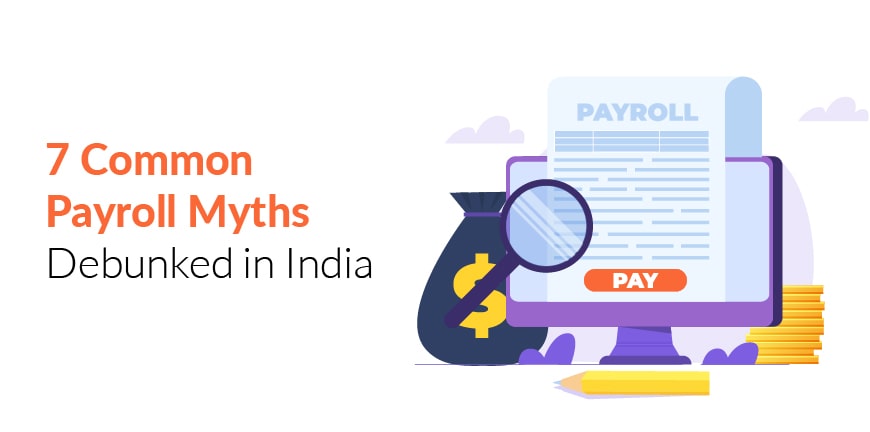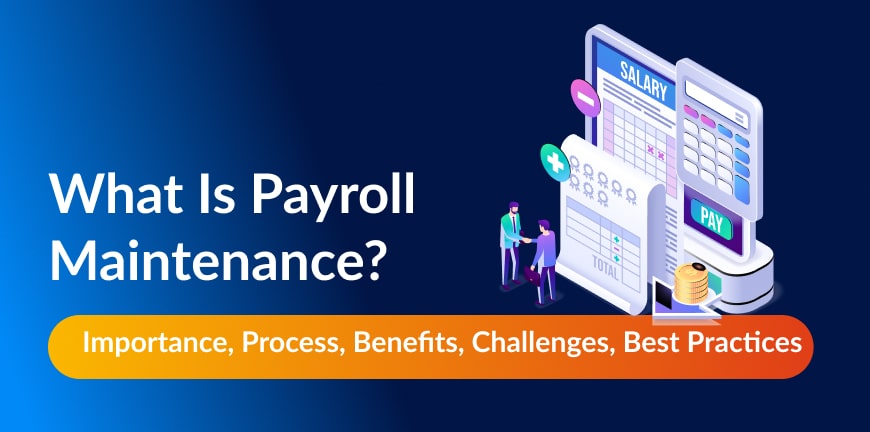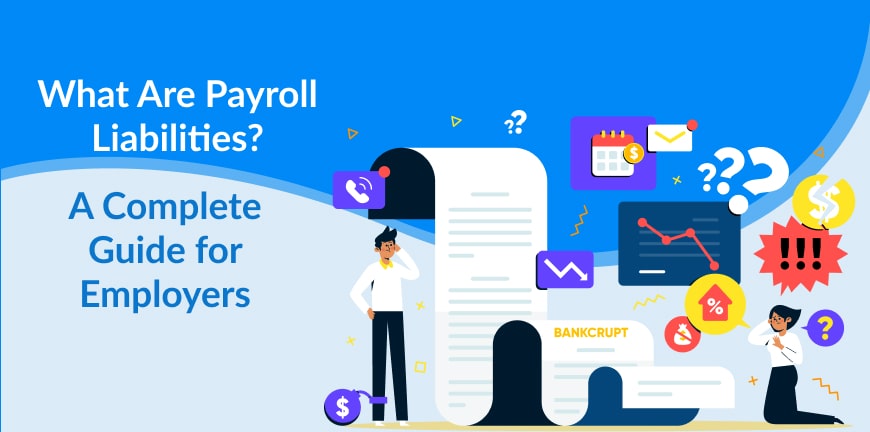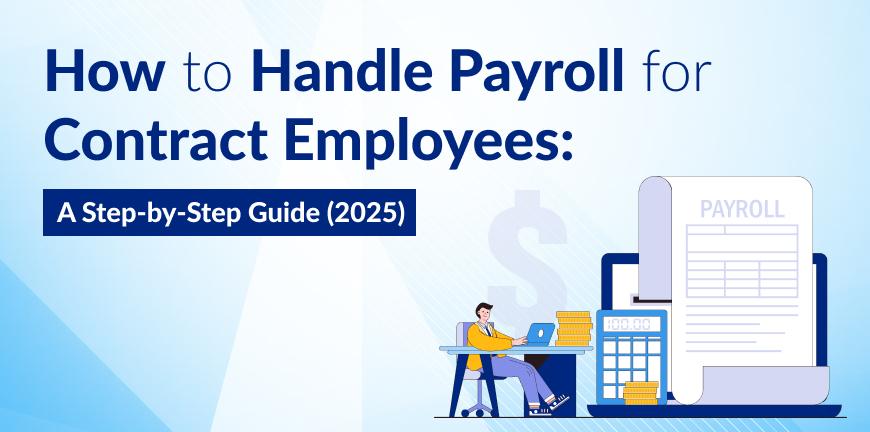
7 Common Misconceptions About Payroll Management System
04/01/2022
These 6 Things Will Change the Way You Approach Permanent Staffing
04/02/2022Growing companies have changing needs and with these come newer challenges. Managing and processing payroll is a complex process due to its many legal and financial implications. Navigating the challenges of the dynamic payroll management landscape can be equally complicated for both small and large enterprises. Some of these issues may happen on a day-to-day basis and resolving all of them will not always be possible by your in-house team well enough. Surveys suggest that more than half of the employers believe their Payroll Management Systems or processes, on the whole, can be made better with enhancements or improvements. Outsourcing Payroll Management Services can certainly help with the better handling of the troubles related to payroll processing. Investing in the right Payroll Management System is a fundamental step in building trust with your employees. While every company could have its own set of unique payroll challenges, here are the top 5 tips to help you get through some of the most commonly seen payroll processing problems.
Surveys suggest that more than half of the employers believe their Payroll Management Systems or processes, on the whole, can be made better with enhancements or improvements. Outsourcing Payroll Management Services can certainly help with the better handling of the troubles related to payroll processing. Investing in the right Payroll Management System is a fundamental step in building trust with your employees. While every company could have its own set of unique payroll challenges, here are the top 5 tips to help you get through some of the most commonly seen payroll processing problems.
How to Handle the Payroll Challenges?
Tip 1 – Handling Compliance Management Challenges
Payroll compliance has always been a challenging area for businesses irrespective of the size of the organization. The Payroll Management System needs to follow timely practices of filing taxes or adhere to statutory compliance requirements or Government labor laws.
The result of not doing so will mean significant penalties or legal liabilities affecting the credibility of your company. Using an automated cloud-based Payroll Management System can effectively support the ongoing and changing compliance demands making it a sensible solution for small and medium-sized businesses.
Ensuring that the payroll processes follow compliance is a critical function and there has to be consistent monitoring of legislation changes and other industry-level requirements. Outsourcing payroll processing to experts in the field is another way to manage payroll compliance-related issues.
Tip 2 – Managing Time Taken for Payroll Configurations
Between compiling data, checking the accuracy of the recorded data, complying with laws and regulations, or doing complicated salary calculations; payroll processing in any organization takes up a great deal of time. This is the case even when the company has all the relevant tech platforms for processing payroll efficiently. Add to this, the burden of the massive amount of paperwork involved. The top reason why many companies still handle payroll functions manually is to avoid the initial investment. But when you think of the various process redundancies and inefficiencies that could get in your way and hamper growth, this is not a big price to pay. Using an automated cloud payroll solution for seamless payroll management is the most practical way to better manage the time taken for payroll configurations.
Add to this, the burden of the massive amount of paperwork involved. The top reason why many companies still handle payroll functions manually is to avoid the initial investment. But when you think of the various process redundancies and inefficiencies that could get in your way and hamper growth, this is not a big price to pay. Using an automated cloud payroll solution for seamless payroll management is the most practical way to better manage the time taken for payroll configurations.
Tip 3 – Handling Safety and Security Issues
Ensuring that your company’s confidential payroll data is kept secure is something that should be dealt with seriously. Even the slightest security breach can lead to your company losing crucial assets and most importantly the trust of your employees.
When payroll processing is done manually, the risk of fraud is even higher through false commissions, fake insurance claims feigning injuries, mishandling of data, or information leakage. Especially in today’s world, all it will take is just a single click on the wrong link to make your entire payroll database vulnerable to security issues like phishing, social engineering scams, or targeted cyber-attacks.
It is important to make sure that your payroll software is updated and patched to include recent fixes and to conduct scheduled payroll audits. Implementing a cloud-based Payroll Management System that is perfectly secure, scalable and seamlessly integrated to enable easy control of finances and HR activities, will make sure that the control is always in the right hands.
Tip 4 – Managing Software Non-Compatibility Issues
From maintaining the attendance data or records of the staff, tracking hours, to making salary payments into bank accounts or even acting as a self-serve portal for the employees, a Payroll Management System can have a host of other cloud-based functionalities as well. But if your company already uses other software to handle employee records, performance or employee benefits, then ensuring the compatibility of the payroll program with the rest might prove to be a challenge.
As a business owner, your priority should always be finding ways to make your company efficient and cost-effective in the long run. A key step for this is to implement a comprehensive cloud payroll software that integrates all HR and payroll functions and streamlines the whole process. Some other tips to overcome software non-compatibility issues are performing periodic compliance audits and random database checks.
Tip 5 – Dealing with Unproductive and Outdated Payroll Systems
It’s a widely accepted fact that repetitive, mundane tasks have a way of affecting the morale and productivity of your employees. Outdated manual payroll systems that depend on a huge amount of paperwork are soon becoming a thing of the past.
Apart from being a burden for your team, such an archaic system is also easily prone to errors and fraud. With conventional systems, another challenge is the difficulty in report sharing even among departments in the organization, and the inability to maintain a backup of vital information for future use. By automating the payroll process and using a specialized Payroll Management System, the productivity of your company can be enhanced manifold.
An automated cloud-based Payroll Management Software will help solve several challenges related to payroll and pave the way to smarter workplaces. Outsourcing the key payroll processing functions to experts in this area is another way to ensure that such challenges are dealt with professionally.
Once you do this, you will begin to see the internal productivity and in-house tech investment getting effectively optimized. Outsourcing payroll processing to professionals guarantees many benefits, allowing more time for your key personnel, reducing payroll processing costs, ensuring better compliance with rules and regulations, leveraging the technology of the outsourcing partner, reducing the risk of fraud or data leakage, reducing the possibility of errors cropping up and the downtime for troubleshooting.
With businesses evolving continuously and looking for innovative ways to reinvent their offerings, products, or services, the last thing you want is to get caught up in a web of payroll-related intricacies and challenges.




